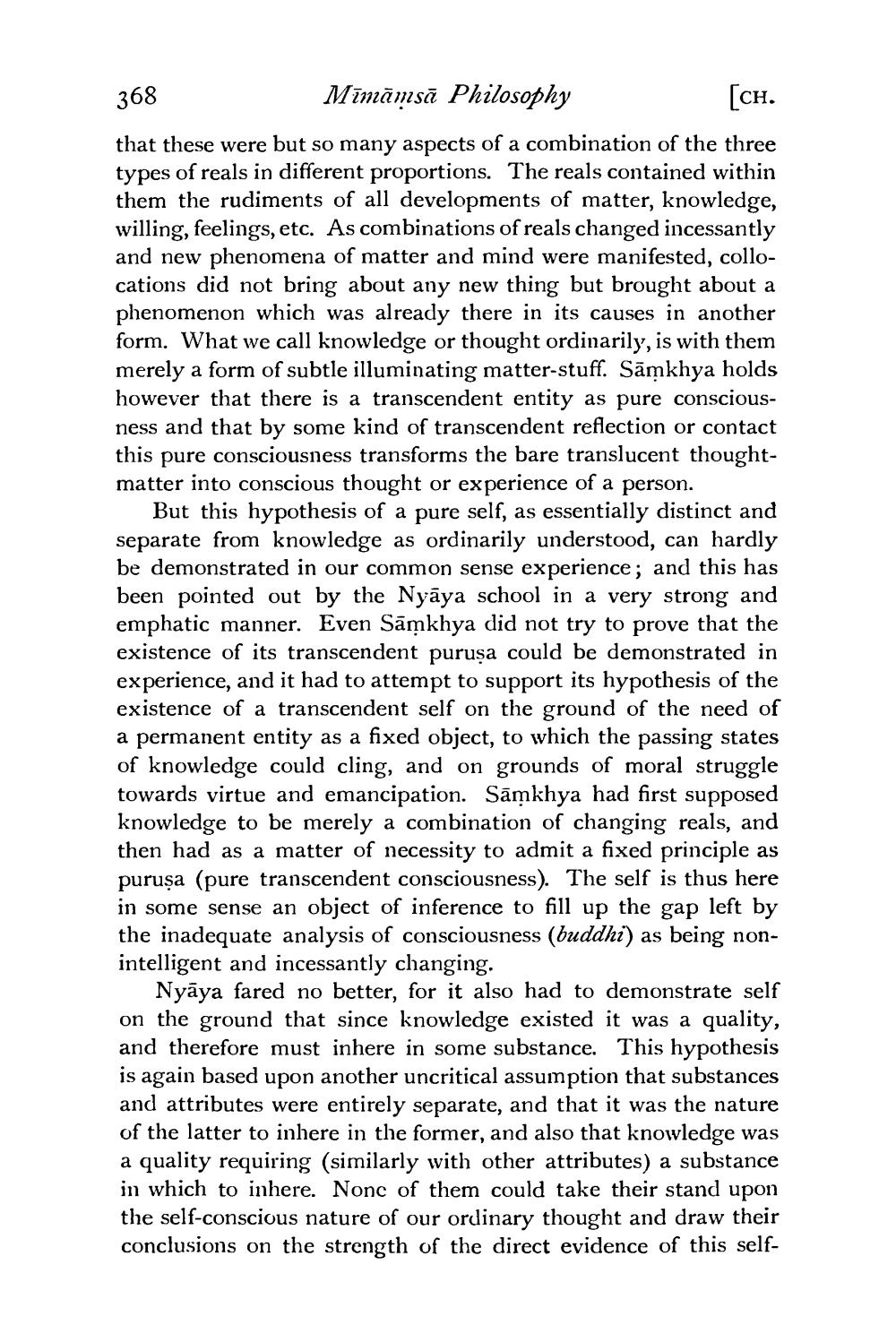________________
368
Mimamsa Philosophy
[CH.
that these were but so many aspects of a combination of the three types of reals in different proportions. The reals contained within them the rudiments of all developments of matter, knowledge, willing, feelings, etc. As combinations of reals changed incessantly and new phenomena of matter and mind were manifested, collocations did not bring about any new thing but brought about a phenomenon which was already there in its causes in another form. What we call knowledge or thought ordinarily, is with them merely a form of subtle illuminating matter-stuff. Sāmkhya holds however that there is a transcendent entity as pure consciousness and that by some kind of transcendent reflection or contact this pure consciousness transforms the bare translucent thoughtmatter into conscious thought or experience of a person.
But this hypothesis of a pure self, as essentially distinct and separate from knowledge as ordinarily understood, can hardly be demonstrated in our common sense experience; and this has been pointed out by the Nyaya school in a very strong and emphatic manner. Even Samkhya did not try to prove that the existence of its transcendent puruşa could be demonstrated in experience, and it had to attempt to support its hypothesis of the existence of a transcendent self on the ground of the need of a permanent entity as a fixed object, to which the passing states of knowledge could cling, and on grounds of moral struggle towards virtue and emancipation. Samkhya had first supposed knowledge to be merely a combination of changing reals, and then had as a matter of necessity to admit a fixed principle as puruşa (pure transcendent consciousness). The self is thus here in some sense an object of inference to fill up the gap left by the inadequate analysis of consciousness (buddhi) as being nonintelligent and incessantly changing.
Nyaya fared no better, for it also had to demonstrate self on the ground that since knowledge existed it was a quality, and therefore must inhere in some substance. This hypothesis is again based upon another uncritical assumption that substances and attributes were entirely separate, and that it was the nature of the latter to inhere in the former, and also that knowledge was a quality requiring (similarly with other attributes) a substance in which to inhere. None of them could take their stand upon the self-conscious nature of our ordinary thought and draw their conclusions on the strength of the direct evidence of this self




